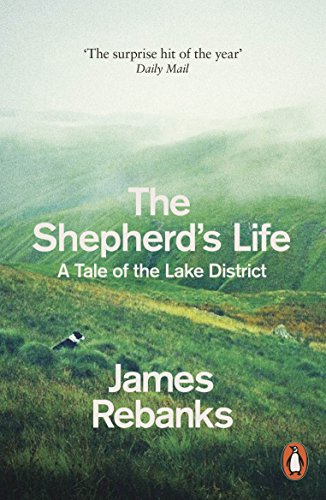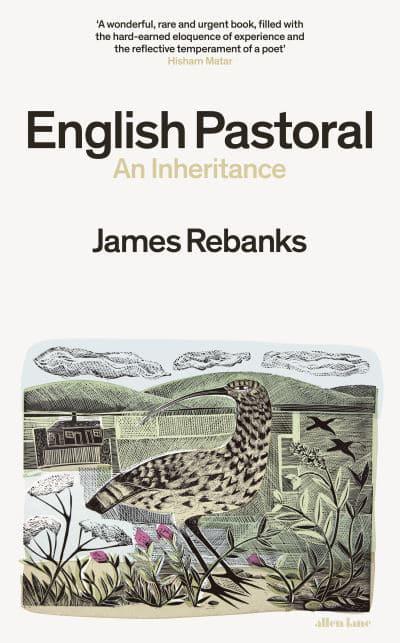Two beautiful books by James Rebanks.
 Rebanks is a farmer in the Lake District of England, grazing sheep and cattle and working the land in an area where his family have done much the same for over six hundred years. Yes, six centuries. The Shepherd’s Life came out in 2015. It was a memoir, a diary of Rebanks’s farming year, a meditation on farming and landscape and community and belonging. English Pastoral is also beautiful to read, but angrier and more political. Having read the first book, and now this, I think rightly so. He says:
Rebanks is a farmer in the Lake District of England, grazing sheep and cattle and working the land in an area where his family have done much the same for over six hundred years. Yes, six centuries. The Shepherd’s Life came out in 2015. It was a memoir, a diary of Rebanks’s farming year, a meditation on farming and landscape and community and belonging. English Pastoral is also beautiful to read, but angrier and more political. Having read the first book, and now this, I think rightly so. He says:
The last forty years on the land were revolutionary and disrupted all that had gone before for thousands of years – a radical and ill thought-through experiment that was conducted in our fields.
I lived thought those years. I was a witness.
 Both books are serious and lyrical, descriptive and closely observed, a delight to read if you enjoy what’s called ‘nature writing’; at the same time, they are unsentimental about the brutal realities of farm families and farm life. Rebanks is incandescent with rage about the ongoing and seemingly unstoppable degradation of soil and land and living creatures great and small when all these are simply inputs in the ledgers of some giant agribusiness. He’s all about connection to his land and community and way of life
Both books are serious and lyrical, descriptive and closely observed, a delight to read if you enjoy what’s called ‘nature writing’; at the same time, they are unsentimental about the brutal realities of farm families and farm life. Rebanks is incandescent with rage about the ongoing and seemingly unstoppable degradation of soil and land and living creatures great and small when all these are simply inputs in the ledgers of some giant agribusiness. He’s all about connection to his land and community and way of life
(Grandad)… stopped the tractor, climbed off slowly, cursing his stiff old legs as they planted themselves in the freshly tilled soil. He strode across the ground, eyes fixed on the spot. I wondered what he had seen. He bent down and picked something up from a scratch in the ground and put it in his flat cap. Then he climbed back in and set the cap on my knee. I looked down at the eggs and held one in my hand. It was warm, and the mottled colour of the boiled imitation-pebble sweets you could buy at the seaside. They are curlew eggs, he told me. They nest in these fields. We bounced on. When we had come full circle, he took the cap full of eggs, climbed out and placed them back on the ground where they were, recreating something like a nest with the back of his knuckles. I asked him if the parent birds would come back to them, and he said, ‘Sometimes they do, sometimes they don’t…but this is the best you can do.’
When we came around the field ten minutes later, the mother curlew was nestled in the dusty seedbed like nothing had happened, and my grandfather grinned. That night I told Dad proudly about Grandad and the curlew eggs. He said Grandad was a ‘soppy old bugger’ and no wonder we had taken so long to get the work done.
All right. Maybe that does come across as sentimental. But later, Rebanks talks about the disappearance of bird species from British farmland. With the improvements in farm machinery and methods have come catastrophic loss of habitat. No hedges or turning circles or rough patches left for nesting birds; no Grandad in a tractor to see the nest in the furrow and ‘do the best he can do’.

I have heard a bit about English Pastoral, but I haven’t read it yet. It’s interesting, but not surprising, that he’s become angrier and more political. There is a lot to be angry about.